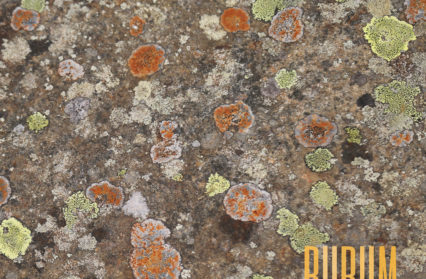Gary Raymond reviews the fourth album from Welsh jazz outfit Burum, Eneidiau.
Two competing questions crop up in my mind when listening to the progress of Welsh jazz as it moves in the stewardship of players like Tomos Williams. First is this: when is a good time to move on from the influence of Miles Davis? Second: why should you at all? Williams, with his band Burum (but also with his other projects) takes Davis with him no matter where he’s wandering (if wandering doesn’t conjure up too many connotations of guileless listlessness). Williams is no such bandleader. If you’ve ever seen him live, you’ve seen a man of intense focus, of a quiet ferocity of vision, and, it mustn’t be left out, a man who resolutely enjoys his music, his band, and his position on the stage. Burum now are a fixture on the jazz circuit, and anything coming from that camp is to be hotly anticipated. Eneidiau is their fourth album, and as with the previous three, is not just an extension of a catalogue but is part of an evolving journey for the sound of the band and the preoccupations of its leaders (I should say Burum is the band of Tomos Williams and his brother Daniel on trumpet and tenor sax respectively). Burum is the Welsh word for yeast, and it seems the growth of the band, then, is an intentional organic measurement and not just the way things have turned out.
The most prominent move on Eneidiau is the recruitment of Patrick Rimes, a multi-instrumentalist whose bagpipes and various whistles break out into the soundsphere like the kicking over of the buffet table at a wedding. And things were going so well; now comes the folkloric razzle dazzle. Rimes’ contributions pierces that Miles Davis vibe, and it’s both shocking and entirely welcome. Miles would have approved, no doubt. Opener, a cool-as-shit rendition of “Cariad Cywir” that brings to mind immediately the high-water marks of other scene-setters of the golden age like “Cool Struttin’” or “Prince of Darkness”. The Williams boys have taken the central riff from the Welsh folk song and twisted it into something smoky, all dark glasses at night and toe-tapping of Italian shoe leather.
Eneidiau was born out of a Covid kickstarter fund from the Genesis Foundation, and there is a sense of responsibility within the walls of the album to make this a rounded experience. There are moments of contemplation, moments of seriousness, moments of intensity, but also an atmosphere of thanksgiving, and, yes, fun being had. The vision for the two suits included is impressive, but so is the deconstructionist vibe of the band’s take on “Suo Gân” which again has a swooning recollection of the Second Great Quintet. In the maze of the title track, Burum make no bones about the intersection between folk balladry and modern jazz. It moves from Welsh folk to English folk to Jewish trad riffs and back again, all the time leaning heavily on Mark O’Connor’s expressive percussion as guide. It’s a great journey to go on. Sandwiched between the 11-minute “Eneidiau” and the epic closer “Myn Maur” is the flamboyantly enjoyable electro funk of “Pibddawns Dowlais” which throws some of the mania of Dark Magus and Pangaea. I could listen to a take of this extended to album length, but it’s truncated 3-minute life here also seems right for the context of the album. There is still much to be done with “Myn Maur”, a bawdy, rowdy, eclectic, ecstatic take on an ancient Welsh melody that builds to a sumptuous, measured jam.
Eneidiau is a fine album, replete with gorgeous textures and that irreplaceable vibe of a band playing in a room together. The vision for the material, the arrangements of it, and the intellectual grasp of it all by the musicians, is of the highest quality. Next – indeed, soon – for Tomos Williams, is a new record from his Wales/India project, Khamira – an album and tour of Wales, which will promise just as much as Burum consistently manages to do.
Eneidiau by Burum is available now from bandcamp



 Enjoyed this article? Support our writers directly by buying them a coffee and clicking this link.
Enjoyed this article? Support our writers directly by buying them a coffee and clicking this link.







